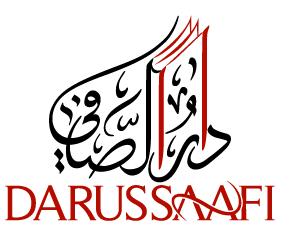Question: In regards to the Qunut of Witr, is it correct to send Salah upon the Prophet (ﷺ) ?
Shaikh: It is not authentic from the Prophet or the addition reported in Sunan an-Nasaai, however, afterwards it became clear to us it was an action of the Imams at the time of Umar Ibn Khattab radiallahu anhu, without anyone detesting it. So we say it is legislated and we continue to say it is not authentic in the Hadith of Qunut. So there is a difference between denial and affirmation. So the denial is the mention of sending Salah on the Prophet(ﷺ) in the established Hadith of Qunut which he taught Hassan Ibn Ali Ibn Abu Talib. The difference is that it is established from some of the Imams who led the people in the night prayer in Ramadan in the time of Umar radiallahu anhu. So we say that is is permissible.
Questioner: that is: when a person makes Qunut and he says:
اللهم إني أسألك بخير ما سألك به عبدك نبيك صلَّى الله عليه وسلم وأعوذ بك من شر ما استعاذك منه عبدك ونبيك صلَّى الله عليه وسلم،
Oh Allah I ask you for the good of what your servant and Prophet (ﷺ) asked you for and I seek refuge in you from the evil that your servant and Prophet (ﷺ) sought refugee in you from
Is that allowed when making Qunut dua?
Shaikh: This one does not know the Dua of Qunut. Dua Qunut is only:
اللهمَّ اهدني فيمن هديت
O Allah, guide me among those Thou hast guided
[Reported by Abu Dawood and others. Grades Saheeh by Al-Albani in Saheeh Sunan Abi Dawood no. 1425]
This is the Qunut of Witr.
Questioner: For example, in Ramadan they increase in supplications.
Shaikh: There is no foundation for this, except if there is a disaster [afflicting ] the Muslims from an attack from the disbelievers or something like that. As for something routine like dua Qunut:
اللهمَّ اهدني فيمن هديت
O Allah, guide me among those Thou hast guided
[Reported by Abu Dawood and others. Graded Saheeh by Al-Albani in Saheeh Sunan Abi Dawood no. 1425
What is besides it is not legislated.
Questioner: that is: I am, for example, in my house. I do not raise my hands after ruku’ but after sami’ Allahu liman Hamidah ,for example, and I say:
اللهم إني أسألك بخير ما سألك به عبدك نبيك صلَّى الله عليه وسلم وأعوذ بك من شر ما استعاذك منه عبدك ونبيك صلَّى الله عليه وسلم،
Oh Allah I ask you for the good of what your servant and Prophet (ﷺ) asked you for and I seek refuge in you from the evil that your servant and Prophet (ﷺ) sought refugee in you from
Or I say:
اللهم صلِّ على محمد وعلى آل محمد
May Blessings be upon Muhammad and the followers of Muhammad
At the end of the Qunut. Or he supplicates for example:
اللهم اجعل القرآن ربيع قلبي
Oh Allah make the Qur’an the spring of my heart
[Graded Saheeh by Al-Albani in Saheeh at-Targhib no. 1822]
Or like this.
Shaikh: It is not legislated in the Qunut Witr except the dua of Qunut which the Messenger (ﷺ) taught Hasan. In this dua it is legislated to send Salah upon the Messenger (ﷺ) following [practice] of some of the salaf. [Break in the tape]
As for increasing upon this dua than this is not legislated. As for if there is an attack from the enemies upon the lands of Islam, then it is allowed to supplicate with what is appropriate for the position. As for general supplication, them we do not increase upon the teaching of the Messenger (ﷺ) .
Questioner: That is: it is an innovation?
Shaikh: Of course. Everything that is an addition to the teachings of the Messenger (ﷺ) and there is not a temporary affair which allows to us to make supplication, as we said a supplication during a disaster, then it is an addition and an addition in worship is an innovation.
Questioner: That is: as you know all the Masaajid here [do this]
Shaikh: I do not know any [Masaajid] remaining?
Masjid-ul-Haram spreads this innovation in every land. I know this. It is not allowed to increase except in a temporary affair.
Questioner: The people, Oh Shaikh, make the duration of the dua reach more than half an hour or possible an hour. The dua alone.
Shaikh: I know. Is there a doubt in this that it is an innovation? There is no doubt in that. The people follow what they do usually do. So it is obligatory to return to the Sunnah.
Questioner: That is, Oh Shaikh, what is the way [ to complete to dua] after:
اللهمَّ اهدني فيمن هديت
O Allah, guide me among those Thou hast guided
We want to know the complete way even one [way].
Shaikh: After the well-known Qunut he [says]:
وصلَّى الله على محمَّدٍ النبيِّ الأُمِّيِّ، وعلى آله وصحبه وسلم
May the Blessings and Peace of Allah be upon Muhammad, the unlettered Prophet, and upon his followers and Companions.
That is all”.
[Taken from: https://alalbany.net/search_wp/fatawa_tape.php?tape=006&B1=%D8%A7%D8%AE%D8%AA%D8%B1]
Translated by
Faisal Ibn Abdul Qaadir Ibn Hassan
Abu Sulaymaan

